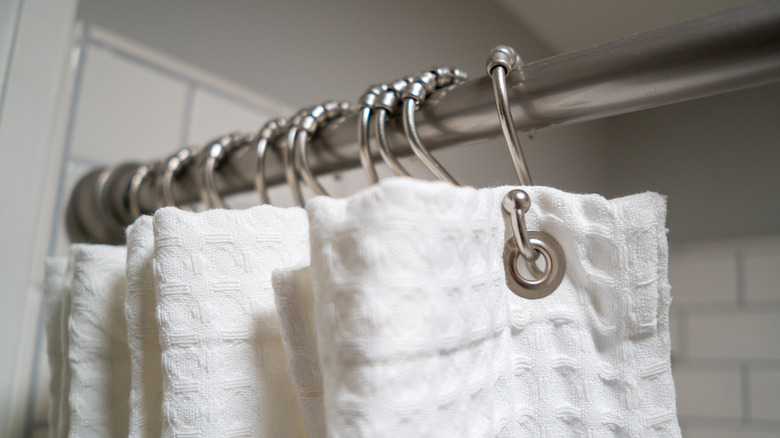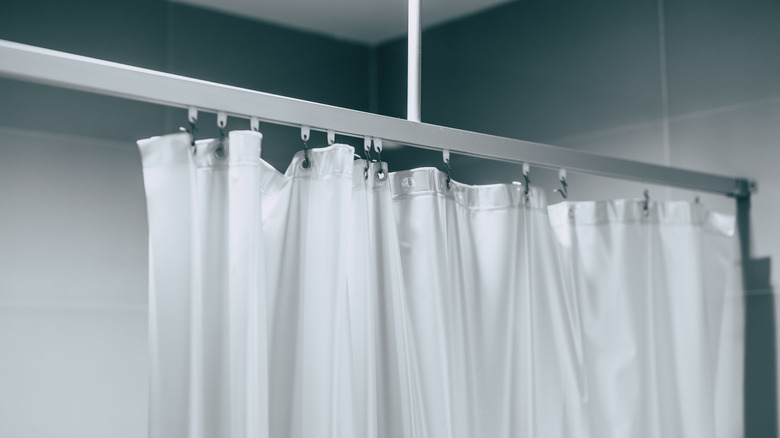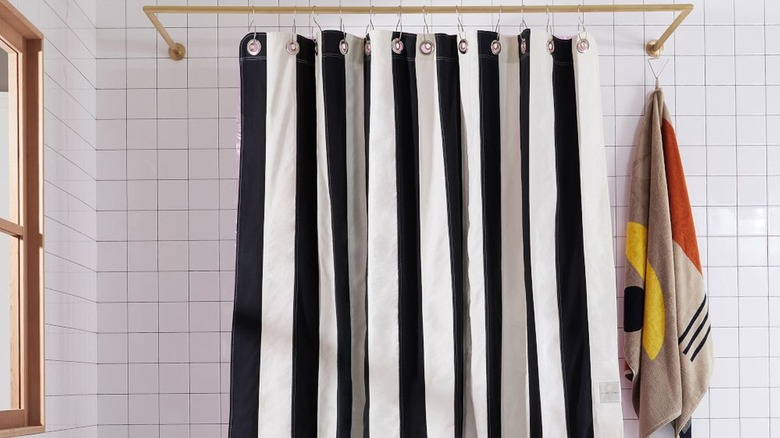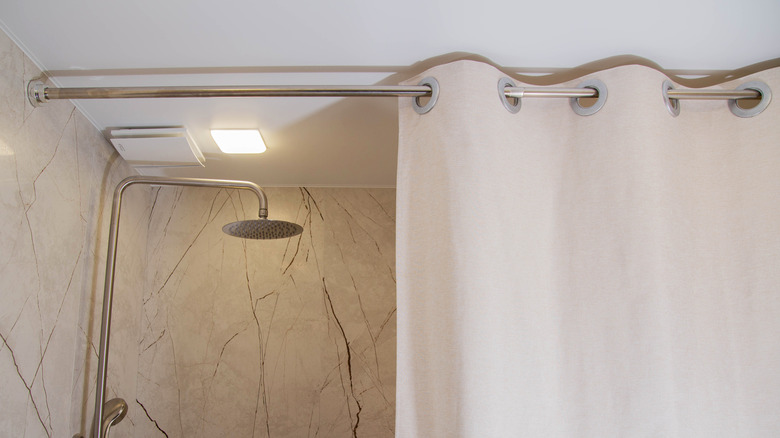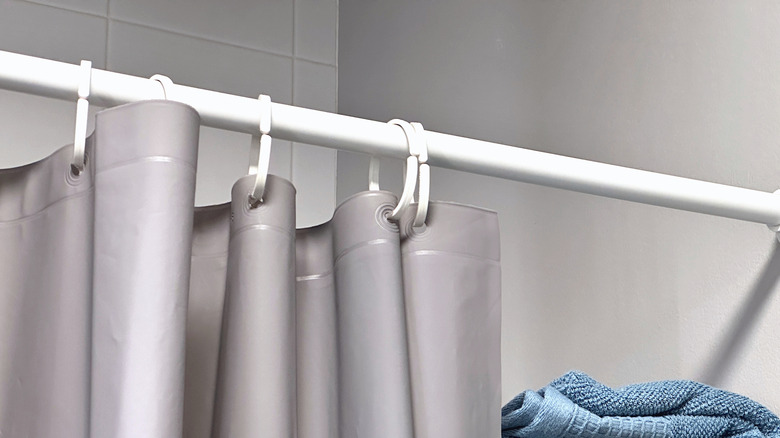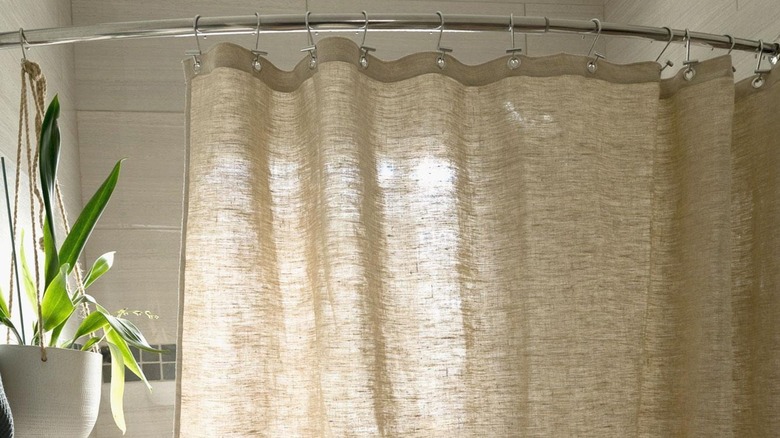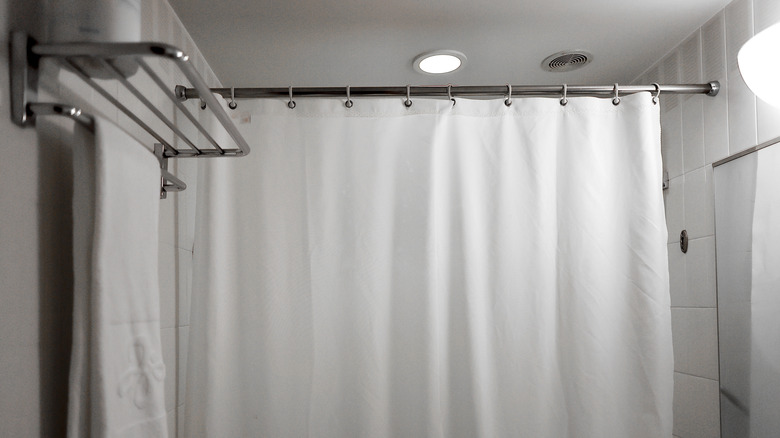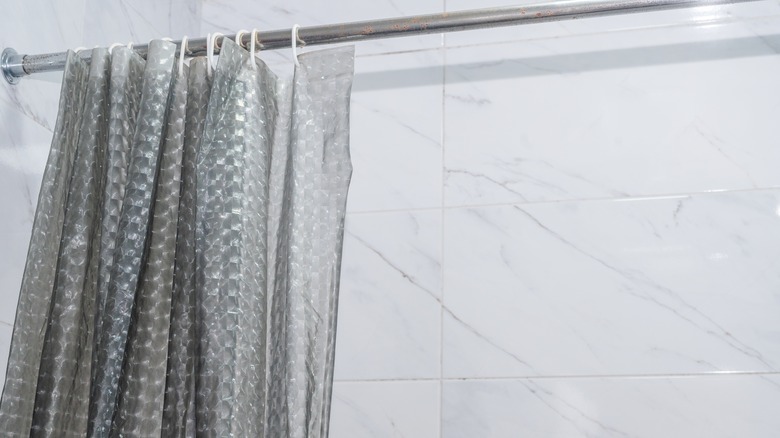7 Shower Curtain Materials To Try (& The Best Way To Clean Them)
We may receive a commission on purchases made from links.
Whether you are planning a whole new look for your bathroom or you just want to upgrade a few key accessories, a new shower curtain can make all the difference. Fortunately, there are a variety of options to choose from when it comes to this functional and decorative drape. Believe it or not, there are multiple types of fabrics for these products, each one with its own benefits. Some of the most popular shower curtain fabrics include polyester, vinyl, cotton, and linen. If you want to opt for something a little more eco-friendly, bamboo and PEVA are also excellent choices. There are affordable options for every single type of material, so you can test and try out several before settling on your favorite.
If you've ever experienced a moldy shower curtain, then you understand the importance of keeping it well-maintained better than most. According to experts, you should be cleaning your shower curtain frequently, anywhere from bi-weekly to every three months. Ideally, you should replace it with a brand new one every year. Each shower curtain fabric on this list, along with its benefits, has its own specific cleaning routine that it's essential to learn about before you buy.
Vinyl (PVC)
If you find a non-cloth shower curtain, chances are it's probably made of vinyl, also known as PVC (polyvinyl chloride). This is the most popular and common type of curtain, thanks to its affordability and durability. To clean this plastic shower curtain, you can toss it in the washing machine using warm water and a gentle detergent, or you can handwash it with baking soda and a damp microfiber cloth. Vinyl is also known for not being the most eco-friendly choice, so if that's important to you, you may want to opt for a fabric-based alternative. Note that this type of material is also known for potentially emitting harmful chemicals.
Cotton
If you want a shower curtain material that is easy to clean, cotton may be your best bet. Light, breathable, and easy to toss into the washing machine, cotton curtains are typically affordable and more eco-friendly than their plastic counterparts. They come in a wide variety of colors, patterns, and textures, making it simple to match them to the rest of your bathroom decor. To clean, simply run them through a cold washing cycle on your machine. To remove odors, you can also pretreat your shower curtain with vinegar. Just soak it in the tub with 1/2 cup of vinegar.
Linen
Similar to cotton, a linen shower curtain is an excellent and affordable option that is also easy to clean. Unlike cotton, however, linen curtains are naturally antimicrobial, thanks to the flax material. This type of material is moisture-wicking, a property that comes in handy when preventing mold growth. To clean, you can either hand-wash or run them in a cold, gentle cycle in your washing machine, using a mild detergent. You should avoid drying linen curtains in a dryer and instead hang them up.
Polyester
Polyester is another popular option for shower curtains. Besides being durable and easy to clean, polyester curtains are known for being wrinkle-resistant. This type of material dries quickly, reducing the risk of mold growth. It's also typically more affordable than other non-plastic materials. To clean, simply toss into your washing machine on a gentle, low cycle. To further combat stains and foul odors, you can pour a 1/2 cup of baking soda or a 1/2 cup of vinegar (during the rinse cycle) into the washing tub. It's recommended to hang dry polyester shower curtains, rather than machine drying them.
Hemp
Hemp is another eco-friendly option for your bathroom shower curtains. This material dries quickly, fighting off mold and mildew growth. Though also plant-based and similar to bamboo, hemp shower curtains are a bit more earth-friendly since hemp requires fewer pesticides and herbicides to grow. It also takes fewer chemicals to turn hemp into fabric. To clean, wash your hemp shower curtain at least once a month in a cold and gentle washing machine cycle. For any spot stain removal, you can use a water and baking soda paste.
Microfiber
As you might expect, due to the moisture-wicking properties of the material, microfiber is a popular choice for shower curtains. It's not only water-repellent but also quick to dry. Unlike cotton or bamboo curtains, microfiber is a heavier material, making it a good choice for those with strong water pressure. This type of material is safe to throw in the washing machine or clean by hand. It's recommended to run it in a gentle cycle with warm water, along with a gentle detergent.
PEVA
Polyethylene vinyl acetate, also known as PEVA, is a common choice for shower curtains. While vinyl curtains are often avoided because they emit harmful chemicals, PEVA is much more eco-friendly and doesn't give off a chemical smell like vinyl ones often do. PEVA is waterproof and affordable, making it a popular synthetic choice. Like most other materials, PEVA can be run on a gentle washing machine cycle and should be hung to dry.
